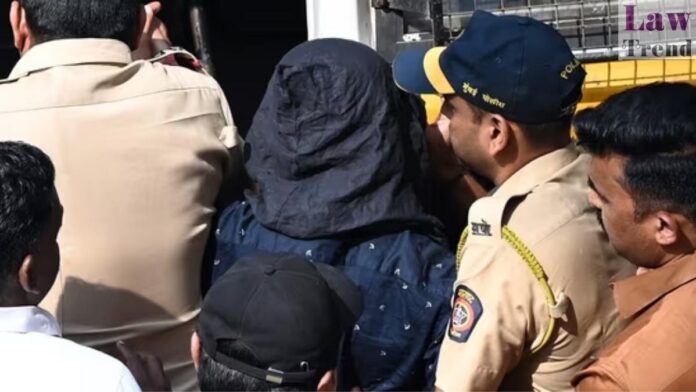In a surprising turn of events in a Bandra courtroom, drama ensued as two lawyers aggressively competed to represent Mohammad Shariful Islam Shehzad, the accused in the stabbing of Bollywood star Saif Ali Khan. The courtroom chaos peaked during the remand proceedings on Sunday when the magistrate had to intervene to restore order.
Shehzad, a 30-year-old alleged to be a Bangladeshi national, is accused of entering Khan’s Bandra residence stealthily in the early hours of January 16. Reports suggest that he ascended to the 12th floor of the Satguru Sharan building using a pipe and infiltrated the actor’s apartment through a bathroom window. The intrusion led to a confrontation with domestic staff, during which Khan was reportedly stabbed multiple times near his neck and spine. Following the incident, the actor was urgently transported to Lilavati Hospital and is reportedly recovering after undergoing emergency surgery.
The contention between the lawyers erupted just as Shehzad was about to sign the vakalatnama, a legal document for authorizing representation. In a heated moment, another lawyer managed to secure Shehzad’s signature for himself, adding to the confusion over who would officially represent the accused.
Shehzad was captured after a three-day manhunt led by the police, who utilized CCTV footage and information from a labour contractor to locate him at a labour camp in Thane. While he has been placed under police custody for five days for further questioning, the exact motive behind the attack remains under investigation, with authorities not dismissing the potential of an international conspiracy.
Outside the courtroom, Shehzad’s lawyer vehemently denied the claims of his client’s Bangladeshi origin. “The police have no concrete evidence to prove my client is from Bangladesh. He has been a resident of Mumbai for over seven years with his family,” stated the lawyer, dismissing the allegations as unfounded.
The lawyers also pointed out several procedural errors in the police investigation, emphasizing a lack of evidence on the supposed intent to murder and critiquing the overall handling of the case. “The remand copy does not even specify an intent to murder, and yet, my client faces severe charges,” one lawyer argued, underscoring the need for a more thorough and documented investigation.
As the legal proceedings continue, the case draws significant media attention, not only due to the high-profile nature of the victim but also the unfolding legal drama surrounding the representation of the accused.




